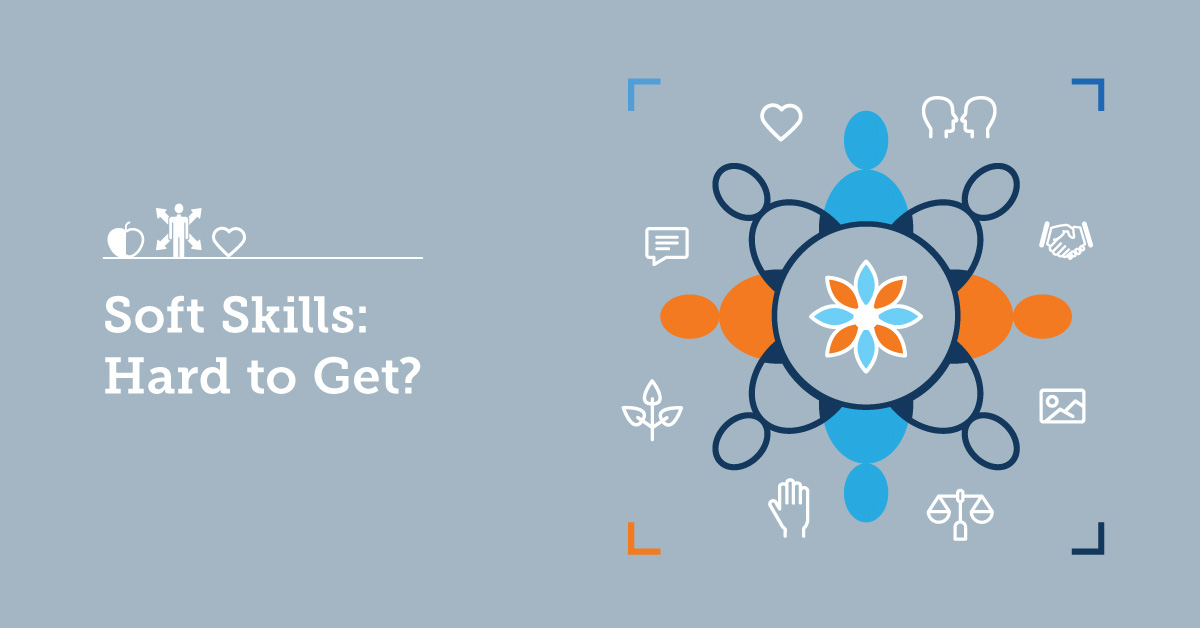Picture a team working at Google.
What shines brighter? Hard skills or soft skills?
If, like us, you said, “Hard skills, duh?”, you are wrong.
You see, Google actually found that most success in their business is a result of soft skills. More specifically, the highest-performing teams at Google exhibit equality, generosity, curiosity, empathy, and emotional intelligence (EQ). Even more surprisingly, hard skills in maths, science, technology, and engineering were ranked dead last – at Google!
So, why do we need soft skills? The answer’s simple. Agility and innovation.
Soft skills determine an organization’s ability to adapt to change, innovate, develop faster ways of doing things, deliver superior customer service and collaborate with culturally diverse teams. Organizations rich in critical thinkers, problem solvers, and clear communicators tend to benefit from higher productivity and more constructive collaboration.
So, human soft skills are fast becoming a critical priority for recruitment decisions. But alas, not all (or even many) people are born with the full suite of soft skills organizations are looking for. Which means that companies can’t always rely on clever recruiting to bring in the softer side of talent. And so the big question is: “Can soft skills be learned?”.
As with any question, there’s more than one answer to this. Actually, there are just two. Yes, and no. Let’s step in the shoes of each one.
Nuh-uh! Soft Skills CAN’T be learned
There are those who believe that soft skills can’t be developed, because – wait for it – they’re not skills at all! These folk take definitions rather seriously, and just don’t see how anyone could define the term soft skills in a way that would make them, well, skills.
You see, the word “skills” is defined across the board as the act of doing something, accomplishing something, or executing on a task. It’s practical and behavioral. Soft skills, on the other hand, are intangible skills. They’re hard to observe and measure, and using them never fully results in an accomplishment or completion of a task.
So, the argument would be, how can you improve soft skills if they can’t be measured or observed? If you don’t really know how good or bad you are at each soft skill to begin with?
Skeptics would conclude that: soft skills can’t be learned, because they aren’t skills at all. Only skills can be learned.
Of course, Soft Skills CAN be learned
Now let’s take a journey over to the more common perspective on soft skills training. That soft skills, like leadership and social skills, can be learned.
This perspective has a lot going for it. It’s been around since the times of Edward Thorndike in the early 1900s, when he shone the light on a new kind of intelligence he liked to call “social intelligence”. Even Charles Darwin, in his Origin of Species, recognized that it’s not the strongest or most intelligent who will survive, but those who can best manage change. He was speaking about soft skills like adaptability and resilience.
The defenders of soft skills training justify their argument like this. If the only way that something can be learned and improved is when it can be measured, then let’s measure soft skills! That’s right. There is a host of validated psychometric assessments (like this one) that tell us how engaged employees are at work, what kind of conflict resolution style they default to, and even how high a person’s EQ ranks.
And you know what they say: the first step towards change is awareness. Once it’s clear which soft skills need improvement, employees can be shown how to learn soft skills through high-quality and targeted training.
But is Soft Skills Training actually hard?
Even those who believe that soft skills can be learned can be skeptical at times. They’ll ask whether soft skills are more difficult to learn than hard skills. Can leadership be learned as easily as typewriting, or another technical skill? Can you teach emotional intelligence with the same training tools you would use for hard skills training?
The answer? Absolutely. Employees just need to want to learn, before they start thinking about how to develop soft skills. This takes little more than motivation and education.
For example, when training kicks off by explaining what is meant by soft skills, and answering questions like “why do we need soft skills?”, employees are immediately more aware of their own softer talents. Leveraging recent studies by successful brands like LinkedIn can also be a great way to emphasize the benefits of soft skills, not only for the business but for employees’ own career growth, too.
It’s always advisable to tap into the wonders of convenient and accessible online training tools. One of those is online discussion forums that can be used for social and communication skills training for employees. Or, you can use interactive videos that educate learners about different personality types, and how to empathize with team members who might be more introverted than themselves.
Conclusion
So, can it be true? Can you really be successful without needing to be technical? Stanford seems to think so. Probably because their research found that 75% of long-term job success depends on soft skills mastery and only 25% on technical skills. Boom!
What are soft skills, but the way of the future! These are the secret weapons that make organizations more agile, creative, and successful. And, as imperfect humans, how can we not give soft skills the training love they need to keep employees growing and evolving?
Now, having heard it all, it’s time you pick a side!
| Tags: Soft Skills Development



